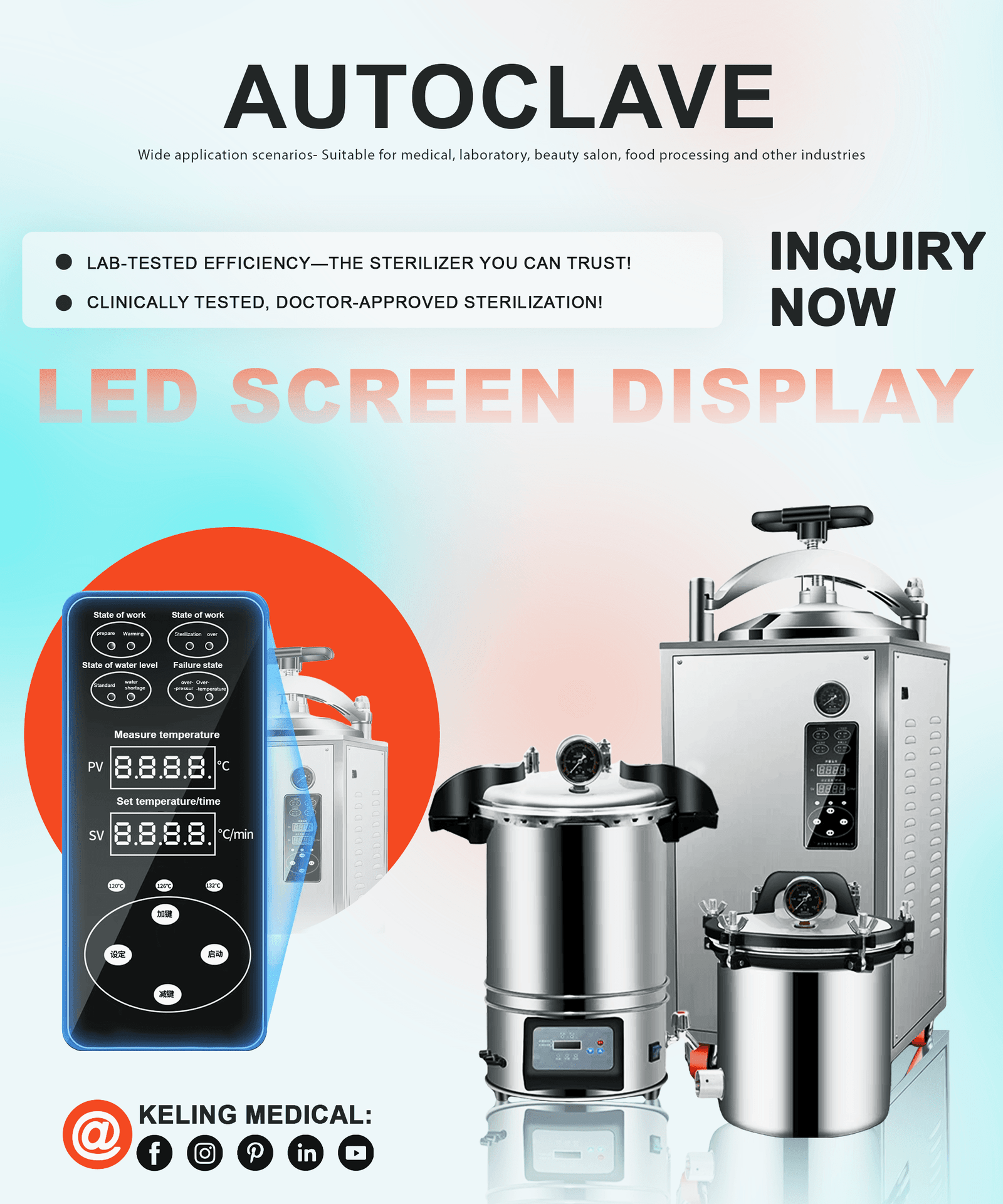
Autoclaves serve dental clinics to sterilize tools including scalpels, forceps, and implants. Autoclaves function by applying saturated steam under pressure at 121°C–135°C to eliminate pathogens while meeting ISO 13060 and ANSI/AAMI ST79 standards. Key advantages for distributors:
Autoclave models that feature chambers larger than 20 liters process over 10 trays each day.
The Eco-mode feature decreases power usage to achieve 30% energy savings.
Built-in audit documentation features such as cycle time tracking and temperature logs make this product audit compliant.
In your product assortment development process these features should take priority.
316L stainless steel construction provides excellent corrosion resistance for the chamber.
The autoclave offers customizable programs that accommodate solids, liquids and hollow instruments.
The autoclave has safety features including automatic lid locking systems and pressure monitoring with emergency cooling capacity.
Autoclaves for international distribution require CE, FDA, and MDR certifications to operate across borders.
Leverage cutting-edge technology to differentiate your offerings:
Fractional Vacuum Systems enable better steam distribution through intricate instruments.
QR code systems allow users to scan codes and connect to digital manuals or submit service requests.
IoT-enabled diagnostics help minimize downtime through Predictive Maintenance Alerts.
The dental tourism industry sees annual growth rates of 15% in Mexico and Thailand based on dental visit numbers.
Following the COVID-19 pandemic 80% of clinics have implemented upgraded sterilization systems.
Small clinics benefit from compact rapid-cycle autoclaves as they move to outpatient care models.
Ensure products meet:
ISO 13485: Quality management for medical devices.
EU MDR 2017/745: Essential for European distribution.
21 CFR Part 11 sets standards for electronic records that meet FDA compliance requirements.
Maximize margins and client satisfaction:
Receive lower prices on orders with 50 or more units.
Custom branding through White-Label Options enables businesses to enhance their market presence.
We provide complimentary webinars to educate users on how to install and maintain equipment.
As a provider of dental clinic autoclaves your company becomes a major player in the $2.3 billion sterilization equipment market. You can create lasting clinic partnerships and grow your revenue streams by emphasizing innovation together with compliance and distributor-friendly terms.
Q1: What is the average lifespan of a dental autoclave? A: With proper maintenance, high-quality units last 8–12 years.
Q2: Do your autoclaves support third-party consumables? A: Yes, they are compatible with standard sterilization pouches and indicators.
Q3: How do you ensure shipment safety for international orders? A: We use shock-resistant packaging and real-time GPS tracking.
Q4: Can I request a sample unit for testing? A: Demo units are available for qualified distributors.
Q5: What after-sales services do you provide? A: 24/7 technical support, spare parts supply, and on-site training.
Elevate your product portfolio with trusted dental autoclaves:
Email: inquiry@shkeling.com
WhatsApp: +86 182 2182 2482
Website: autoclaveequipment.com
Act now to secure exclusive distributor rates and technical resources!

The autoclaving process serves as an essential sterilization practice utilized across medical, laboratory, and research facilities to protect glassware and instruments through effective sterilization. High-pressure steam eliminates pathogens during this

The autoclaving process serves as an essential sterilization practice utilized across medical, laboratory, and research facilities to protect glassware and instruments through effective sterilization. High-pressure steam eliminates pathogens during this
The autoclaving process serves as an essential sterilization practice utilized across medical, laboratory, and research facilities to protect glassware and instruments through effective sterilization. High-pressure steam eliminates pathogens during this
The autoclaving process serves as an essential sterilization practice utilized across medical, laboratory, and research facilities to protect glassware and instruments through effective sterilization. High-pressure steam eliminates pathogens during this
The autoclaving process serves as an essential sterilization practice utilized across medical, laboratory, and research facilities to protect glassware and instruments through effective sterilization. High-pressure steam eliminates pathogens during this
The autoclaving process serves as an essential sterilization practice utilized across medical, laboratory, and research facilities to protect glassware and instruments through effective sterilization. High-pressure steam eliminates pathogens during this